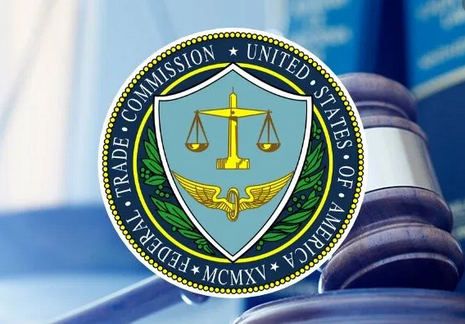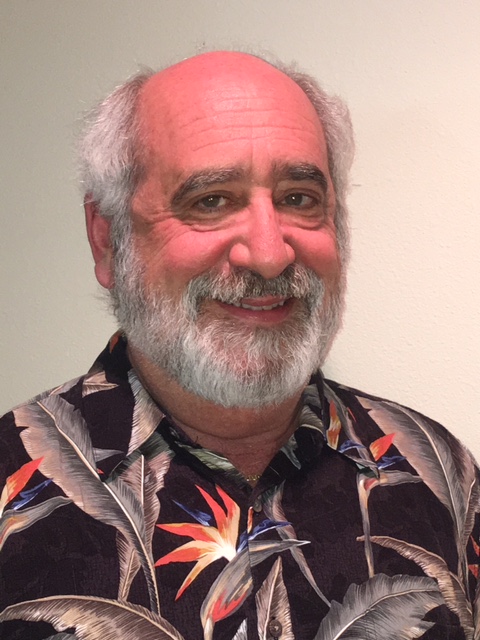
Any public health crisis creates a ripe situation for marketers promising quick cures and phony protections. With COVID-19, the huckstering began almost immediately.
So did federal regulatory actions.
By the second week of March, the FDA had issued cease-and-desist warning letters to seven companies for selling COVID-19 remedies, including teas, essential oils, tinctures, and colloidal silver. The agency fired off a second wave of warnings in April. By August, FDA had sent letters to nearly 100 different companies for “selling fraudulent products with claims to prevent, treat, mitigate, diagnose or cure” coronavirus.
The FDA also sounded alarms about “rogue online pharmacies offer[ing] potentially dangerous prescription drugs.” A catalog of internet companies operating unlawful drug-selling operations is available on the FDA website.
Coordinated Action
Working closely with FDA, the Federal Trade Commission (FTC) also cracked down on advertising of health products and services for preventing or treating COVID.

Kristi Wolff, an attorney with Kelley & Drye, LLP, a law firm specializing in nutrition industry regulation, explains that the warnings come in two basic flavors: The FDA says: “You’re making claims to treat a disease. That is not permitted for dietary supplements.”
The FTC says: “You need competent scientific evidence to substantiate the claim you’re making. We don’t believe you have it. Therefore, we believe you’re making fraudulent claims.”
Since the pandemic began, FTC has issued unprecedented warning letters to more than 250 physicians, clinics, and companies that promoted their products and services with COVID-19 prevention or treatment claims.
None of this is surprising: the FDA and FTC frequently reprimand supplement companies, pharmacies, device-makers, and food/beverage brands that market unverified product or make unsubstantiated, misleading, or inappropriate claims.
What is unique about the agencies’ COVID response is that it targeted healthcare professionals, not just manufacturers and retailers.
Practitioners: A New Target
Since the pandemic began, FTC has issued unprecedented warning letters to more than 250 physicians, clinics, and companies that “promot[ed] their products and services with COVID-19 prevention or treatment claims.”

Some recipients were indeed making egregious and potentially dangerous claims about unproven, or even disproven, COVID therapies. But scores of letters also went to well-meaning healers who had no idea that statements about things like vitamin C and D for immune health, or Chinese herbs based on traditional use counted as “marketing.”
The warnings contend that in making or insinuating COVID claims, these practitioners violated the Dietary Supplement Health and Education Act (DSHEA), which strictly prohibits supplement producers and marketers from making disease-related claims.
Regulators hold that disease treatment language is the inviolable province of drugs and medical devices. To state publicly that a supplement can prevent or cure any disease is to make an unapproved drug marketing claim—even if there is research to support it.
Practitioners: A New Target
Under DSHEA, supplement brands may only make structure/function claims, with the now-familiar disclaimers that, “These statements have not been evaluated by the Food and Drug Administration” and that, “This Product is not intended to diagnose, treat, cure, or prevent any disease.”
The FDA and FTC routinely apply DSHEA to nutrition companies, but they’ve seldom invoked it to discipline practitioners. Yet in the last 6 months, many MDs, DOs, DCs, naturopaths, acupuncturists, and nutritionists have been warned about COVID-related “claims.”
Most were using email, websites, and social media to share information about supplements with potential immunostimulatory effects. In many but not all, cases these practitioners also sell products via in-clinic or online formularies.
Some, including the high-profile Joseph Mercola, were clearly pitching unsubstantiated claims with obvious intent to boost sales of their private label supplement lines. Others are far less famous and less commercially motivated.
Most of the warnings have been simple cease-and-desist letters informing recipients that they violated federal rules, and insisting that they remove all offending statements from all public communications within 48 hours. But the FBI was called in for at least one clinic raid, and there are reports of bank account closures of practitioners who’ve been targeted.
The proliferation of fraudulent COVID cures is a real and significant problem. Equally significant and problematic is the restriction of open communication about potentially beneficial, readily-accessible ways to boost resilience and improve overall health.
Michael Levin, a supplement industry consultant who has decades of experience in both the mainstream and holistic medical worlds, recently met with a high-level FTC official, to better understand the agency’s motives.

He says FTC is simply taking a very hard stance that currently there are no treatments—pharmaceutical, nutritional, herbal, or otherwise—scientifically proven and FDA-approved as effective for COVID-19 or the virus that causes it. Therefore, any commercial language stating or insinuating such benefits is inherently misleading, and therefore in violation of the law. Part of the FTC’s mandate is to protect the public from being misled.
A Hard Stance
This view is summed up clearly in phrasing found in many of the warning letters:
“It is unlawful under the FTC Act, 15 U.S.C. § 41 et seq., to advertise that a product or service can prevent, treat, or cure human disease unless you possess competent and reliable scientific evidence, including, when appropriate, well-controlled human clinical studies, substantiating that the claims are true at the time they are made. For COVID-19, no such study is currently known to exist for the services identified above. Thus, any coronavirus-related treatment or prevention claims regarding such services are not supported by competent and reliable scientific evidence.”
One troubling feature of the recent warnings is that they sometimes cite general immune system claims as de facto COVID claims, even though the actual language may comply with structure/function rules, with no mention of “COVID” or “coronavirus.”
In the post-pandemic era, apparently, any mention of the immune system is considered a proxy for COVID.
This worries many natural medicine advocates. For years, the regulators considered claims like “supports a healthy immune system” to be within bounds. Not anymore.
“We have a growing concern that the FTC is working hard to push back what has been “safe” structure/function claims territory,” said the United Natural Products Alliance in a recent bulletin. “The worst case is that this trend would now follow to other important categories, whether COVID-19 or not.”
Concern in Congress
There’s legislative weight behind the recent regulatory moves. In July, the Senate Subcommittee on Manufacturing, Trade and Consumer Protection, headed by Sen. Jerry Moran (R-KS) held a hearing titled, “Protecting Americans from COVID-19 Scams.“
“During this time of national emergency and coordinated recovery, there are fraudsters and scam artists that seek to take advantage of consumers, especially the nation’s most vulnerable communities,” said Sen. Moran. “FTC’s Consumer Sentinel Network reports that consumers across the US have reported over 136,000 different cases of COVID-related scams totaling approximately $90 million in total fraud losses from January 1 to July 20. These are only the reported cases. It is fair to assume that there are harmful consumer scams that have not been reported to date.”
Moran, and others in Congress, feel they have an obligation to protect Americans from, “unsubstantiated health benefits advertised for certain products, illegal robocalls pitching low-priced health insurance, fraudulent donation solicitations, or even impostors claiming to be from federal agencies collecting mandatory payments.”
Few in the natural products industry take issue with this stance, at least in principle.
Back in February, a coalition of supplement associations issued a stark warning about COVID treatment claims.
“While research supports the use of certain dietary supplements to maintain immune system health, we are not aware of clinical research that demonstrates using a dietary supplement specifically to prevent or to treat the Novel Coronavirus,” says the position statement.
“Even if research is conducted and published on the topic, the law that regulates dietary supplements [DSHEA] prohibits marketers of dietary supplements in the US from promoting any dietary supplement product that makes disease prevention or treatment claims.”
Claims vs Clinical Communication
At issue currently is whether a physician’s social media posts about the immune-boosting potential of medicinal mushrooms or oil of oregano, for example, constitute COVID-related disease claims or clinical communication.
Levin says the FTC is acting on the principle of “commercial speech”, which includes statements made on a clinic’s website, in email newsletters, or on social media posts—especially if the person or company has something to sell.
But he stressed that FTC has shown no interest in regulating the protected and private speech between doctors and their patients.
The commission, he says, distinguishes between one-on-one clinical conversations and public communication. Unfortunately, many practitioners do not.
Some clinicians who were blind-sided by the warning letters believed they were simply offering guidance to their audience (patients and prospective patients) for improving their resilience, mitigating risk, and supporting immune function. It was ignorance of the regulations that got them in trouble, not knowing intent.
Regulators hold that disease treatment language is the inviolable province of drugs and medical devices. To state publicly that a supplement can prevent or cure any disease is to make an unapproved drug marketing claim—even if there is research to support it.
Some health advocacy groups are concerned that the warning letters foreshadow a larger, more insidious federal effort to curtail natural health care.
“Your right to learn from your doctor about natural methods of staying healthy during the pandemic are under threat,” the Alliance for Natural Health warned consumers in a May statement. “The FDA, FTC, Department of Justice, and some state attorneys general have launched a coordinated censorship campaign that prevents medical doctors and other healthcare providers from communicating their extensive knowledge about how to stay healthy…using natural medicine.”
Finding a Middle Path
The proliferation of fraudulent COVID cures is a real and significant problem.
Equally significant and problematic is the restriction of open communication about potentially beneficial, readily-accessible, low-risk ways to boost resilience, reduce cardiometabolic risk, and improve overall health.
The question is how to regulate the market appropriately to protect the public from scams without penalizing practitioners who are simply trying to educate patients.
Finding that reasonable middle path will take considerable advocacy, time, and goodwill from all parties involved.
For now, Levin says practitioners would do well to learn the rules. “With COVID-19 in this digital age, medical professionals who advertise products and services must learn how to avoid regulatory landmines. Health care organizations don’t understand what’s required under advertising laws. And they don’t teach about that in medical schools.”
Several medical organizations have acknowledged the need to train members about the kinds of messages that trigger regulatory action. The American Association of Naturopathic Physicians (AANP) updated its guidance to members, advising members against commercializing or marketing the natural treatment approaches they write about in any of their patient communications.
Saying ‘Vitamin D boosts immunity’ on your website is free speech. Saying “Vitamin D boosts immunity and you can buy it at my store” is marketing. Regulators are unlikely to object to the first statement. They very well could target the second.
Levin is working with Holistic Primary Care and several integrative medical organizations to develop an online training program that will help practitioners to “stay within the bright white lines of approvable commercial speech, while maintaining their freedom of speech to heal others.”
Watch for that later this Fall.







